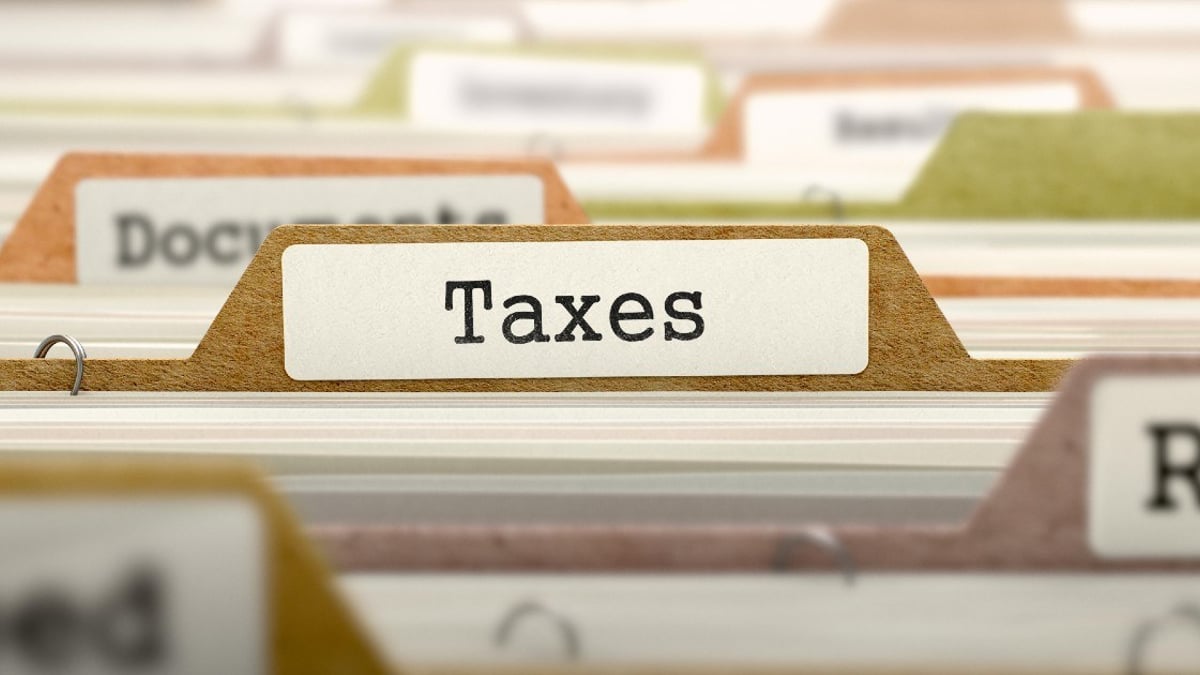Comparing Sports Betting Taxes by State

Legal sports betting has taken the U.S. by storm. For more than 25 years, the Professional and Amateur Sports Protection Act (PASPA) prohibited states from legalizing sports betting. With their destiny now in their hands, many jumped at the opportunity and the potential tax revenue the activity would generate.
As the national tally indicates, it’s “mission accomplished” regarding tax revenue, with legal sports betting generating over $2 billion in tax revenue since the Supreme Court struck down the PASPA in May 2018.
Below is a comprehensive look at sports betting taxes by state, including the retail sports betting tax rate and mobile sports betting tax rate.
Some states were more interested in tax revenue than others, evidenced by the significant differences in sports betting tax rates. As such, sports betting taxes by state varies.
Examining the states with mobile sports betting shows a wide gap in the marginal sports betting tax rate.
Marginal vs. Effective Tax Rates
There is a significant difference between the marginal tax rate and the effective tax rate in the 10 states plus the District of Columbia that allow considerable deductions for promotional spending (five other states allow modest deductions).
Those locales are:
- Arizona
- Colorado
- Connecticut
- D.C.
- Louisiana (capped at $5 million annually per operator)
- Maryland
- Michigan
- Ohio
- Pennsylvania
- Virginia
- Wyoming
Unsurprisingly, some of these states are having a case of buyer’s remorse, as sports betting isn’t delivering as promised. That can be a serious problem for states, which, unlike the federal government, cannot run budget deficits.
Colorado Caps Promotional Deductions
Colorado expected its sports betting tax proceeds to be 10% of revenue, but promotional deductions have whittled that number to under 5%. The Colorado legislature passed a law in May that will gradually reduce promotional deductions beginning in 2023 with a cap on promotional deductions of 2.5% of handle. In 2024 the cap will be reduced a further .25% each year until it reaches 1.75% in 2026.
Virginia Sees the Writing on the Wall
Virginia didn’t wait very long for its sports betting tax revenue to suffer the same fate as Colorado. After launching in January 2021, the Virginia legislature added a provision to its budget in May 2022 that limits promotional deductions to the first 12 months after an operator launch.
Sunset Clauses in Arizona and Ohio
Arizona and Ohio dealt with promotional deductions in their initial laws.
Arizona allows operators to deduct promotional credits and free bets up to 20% of sports betting handle during the first two years of Arizona sports betting. In Year 3, the cap is 15% and drops to 10% in Years 4 and 5. In Year 6, operators can no longer deduct promotional credits and free bets from their sports betting tax obligation.
The Ohio sports betting tax law took a similar approach to Colorado, slowly reducing the amount of promotional spending operators can deduct over a five-year period.
Where Does the Tax Revenue Go?
The usual landing spot is a state’s general fund, but different locales have earmarked sports betting revenue for everything from education to homelessness to water projects.
Here is a glimpse at what sports betting tax revenue funds in five states.
In Tennessee, sports betting tax revenue is divvied up as follows:
- 80% to the Lottery for Education fund
- 15% to local governments for infrastructure projects
- 5% to the Department of Mental Health for problem gambling and addiction programs
All Maryland sports betting tax proceeds go to education, specifically, the Maryland Department of Education’s Blueprint for Maryland’s Future Fund.
West Virginia sports betting tax revenue goes to the State Lottery Fund, which is used for education, senior citizen programs, and tourism.
Pennsylvania’s sports betting tax revenue is earmarked for the General Fund.
Colorado has an interesting distribution of state sports betting tax revenue. After covering administrative costs and a small stipend for counseling services and a gambling crisis hotline, 6% is placed in a “hold harmless” fund that would be used to reimburse entities negatively impacted by legal sports betting. The remainder heads to the Water Plan Implementation Cash Fund that funds water projects in the state.












